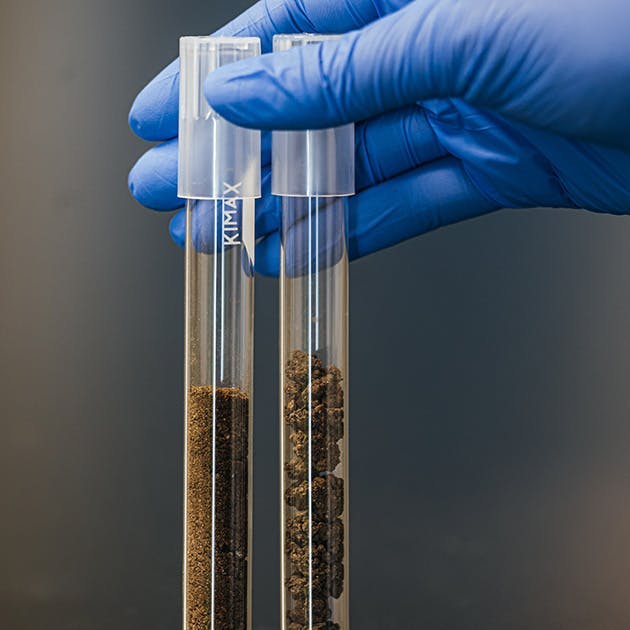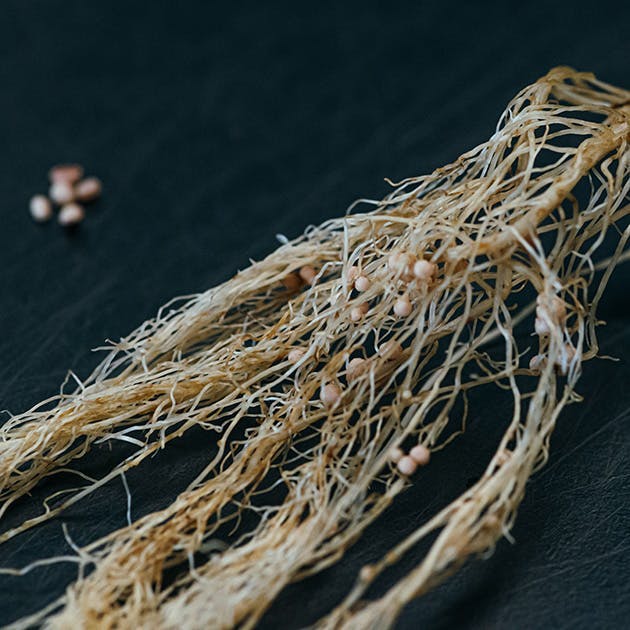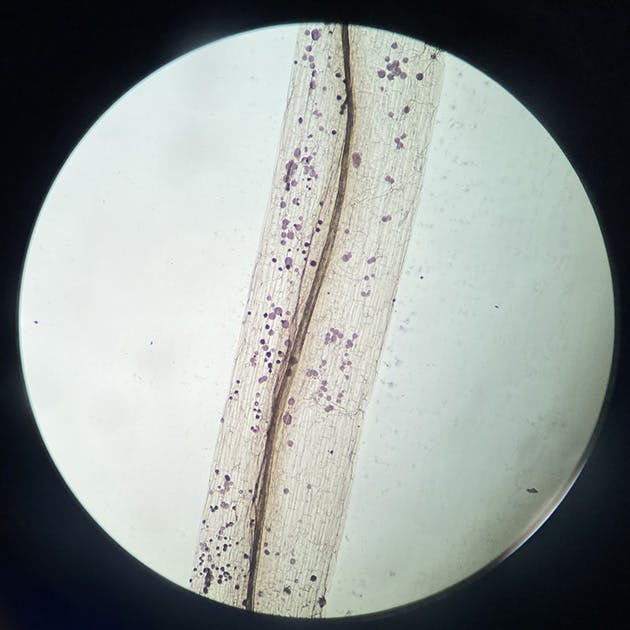Regenerative Agriculture
We lose 24 billion tons of topsoil every year.
This is due to unsustainable land and soil management practices that accelerate degradation through erosion, salinization, compaction, acidification, loss of organic carbon and biodiversity, and chemical pollution accumulation. By scaling sustainable and regenerative farming, global agriculture can shift from being the world's largest driver of soil degradation to its greatest restorer.

Regenerative agriculture transforms farming into a method that promotes life, biological diversity, human and animal health, and plant vigour.
It’s a whole system’s approach to soil, farming and crops – feeding the soil and its microbes, so the soil feeds the plants. With no-till, cover crops, and livestock integration at the core, biological solutions such as biostimulants are being brought into the fold as the industry discovers the impact these novel products can deliver.
Some of the benefits of Acadian’s Ascophyllum nodosum formulated products are well documented. Applications of our seaweed biostimulants have been shown to:
Improve resistance to environmental stresses (ie drought, heat, salinity, etc)
Improve soil health
Increase nutrient uptake
Repair biodiversity
Protect overall crop yield and quality
Improve photosynthetic capacity under stress conditions

There can be no plant health without soil health. A key area of regenerative agriculture is restoring degraded soil. Only healthy soil can grow healthy plants and good soil has microbes, which help with plants’ nutrient uptake, growth, and stress tolerance. Without these tiny helpers working symbiotically with the plant, you cannot create an environment that is healthy and fertile.
Additionally, roots play a crucial role in supporting plant health and crop yields. In fruits and vegetables, root systems affect yield and quality by as much as 30-50%. A well-developed root network absorbs a greater volume of water and nutrients from the soil; it anchors the plant and protects it against the weather; it can store energy for growth; it interacts beneficially with a range of biotic and abiotic factors and contributes to overall soil organic matter or humus.
Adding Acadian biostimulant solutions to crop care inputs can help transition to regenerative agriculture methods without sacrificing productivity or yield. Improving plant nutrition and soil health, both of which are foundational to any regenerative and sustainable agri-food system.
APH seaweed extracts are scientifically proven to improve soil health in the following ways:
Increased growth of arbuscular mycorrhizal fungi
Enhanced plant-microbe symbiosis
Optimized nutrient availability
Increased nodulation on the roots (allows legume plants to use nitrogen from the atmosphere)
Increased soil aggregation and improved soil structure
A well-developed microbiome overall, which can help out-compete pathogens, allowing for better crop establishment, which can lead to improved yields
CO2 “storage sink” (through long-term carbon sequestration). Plants absorb carbon dioxide during photosynthesis and convert it into carbohydrates, which they use to grow leaves, stems and roots
Promotes carbon content in soil through the development of healthier soil and increased root biomass
Research shows:
increase in functional Nodules*
increase in microbial activity during drought stress*
*Hines, S., van der Zwan, T., Shiell, K. et al. Ascophyllum nodosum stimulates arbuscular mycorrhizal fungi. Sci Rep 11, 13491 (2021)
Improving soil health will increase our ability to grow healthy, productive crops and the resiliency of our food production potential for generations. Extensive research has shown that soil health is nurtured by encouraging soil’s complex web of microbial life. Due to their proximity to plant roots, soil microbes directly influence plant growth, health, and productivity. One of the most important groups of microbes found in the rhizosphere are arbuscular mycorrhiza fungi (AMF) which colonize more than 80% of land plants, including agricultural crops.
A growing body of evidence indicates that applications of Acadian’s Ascophyllum nodosum seaweed-based biostimulants broadly influence the structure and activity of microbial communities in the rhizosphere, increasing rhizosphere activity, biodiversity, and metabolic activity. Research into the influence of seaweed extracts on specific microbes, such as AMF, and the influence on their interactions with plants, has been limited. However, a recent study published in Nature Scientific Reports titled Alkaline extraction of the seaweed Ascophyllum nodosum stimulates arbuscular mycorrhizal fungi and their endomycorrhization of plant roots explored this interaction and found that Acadian Plant Health’s seaweed extract improved growth and symbiosis of AMF through multiple mechanisms.[1]

[1] Hines, S., van der Zwan, T., Shiell, K. et al. Alkaline extract of the seaweed Ascophyllum nodosum stimulates arbuscular mycorrhizal fungi and their endomycorrhization of plant roots. Sci Rep 11, 13491 (2021). https://doi.org/10.1038/s41598-021-93035-9


